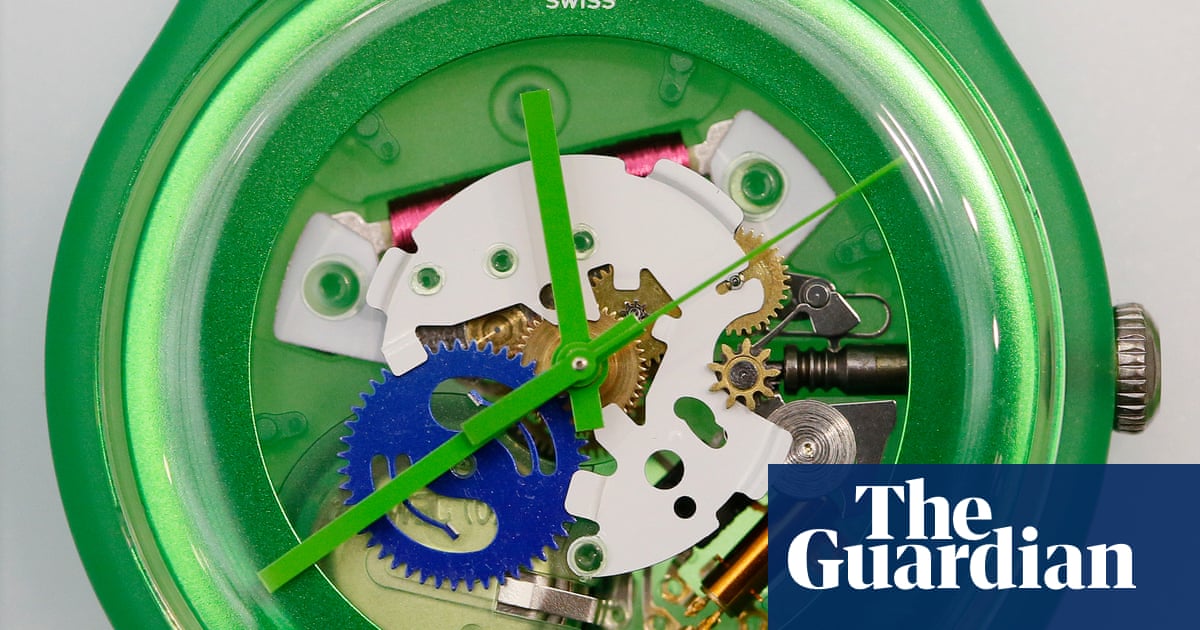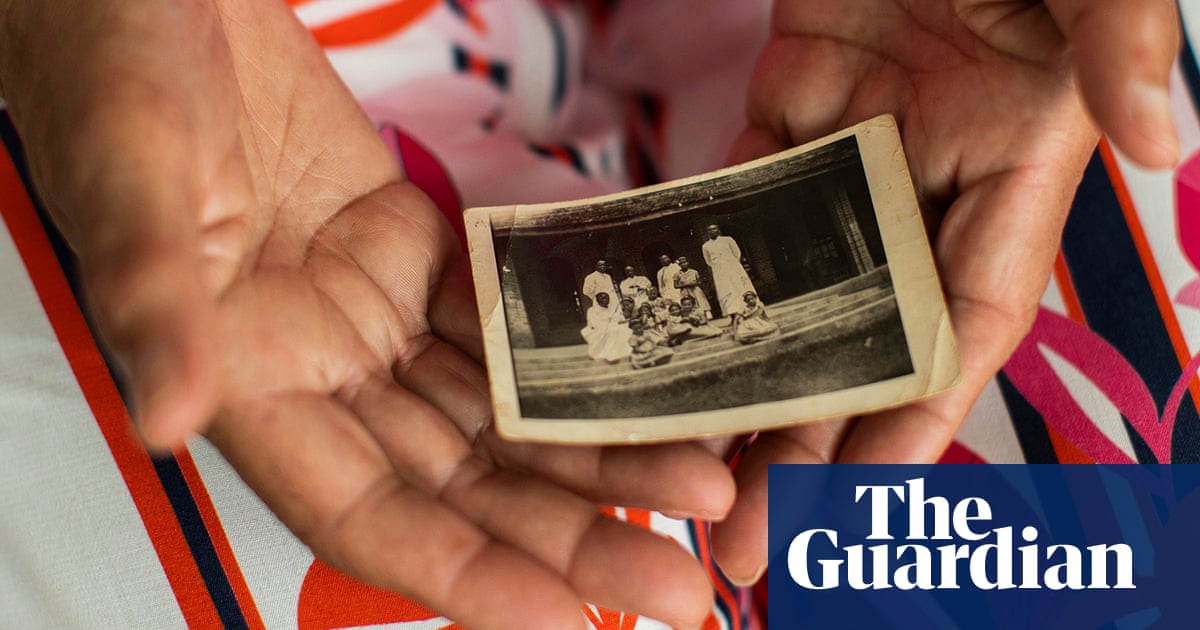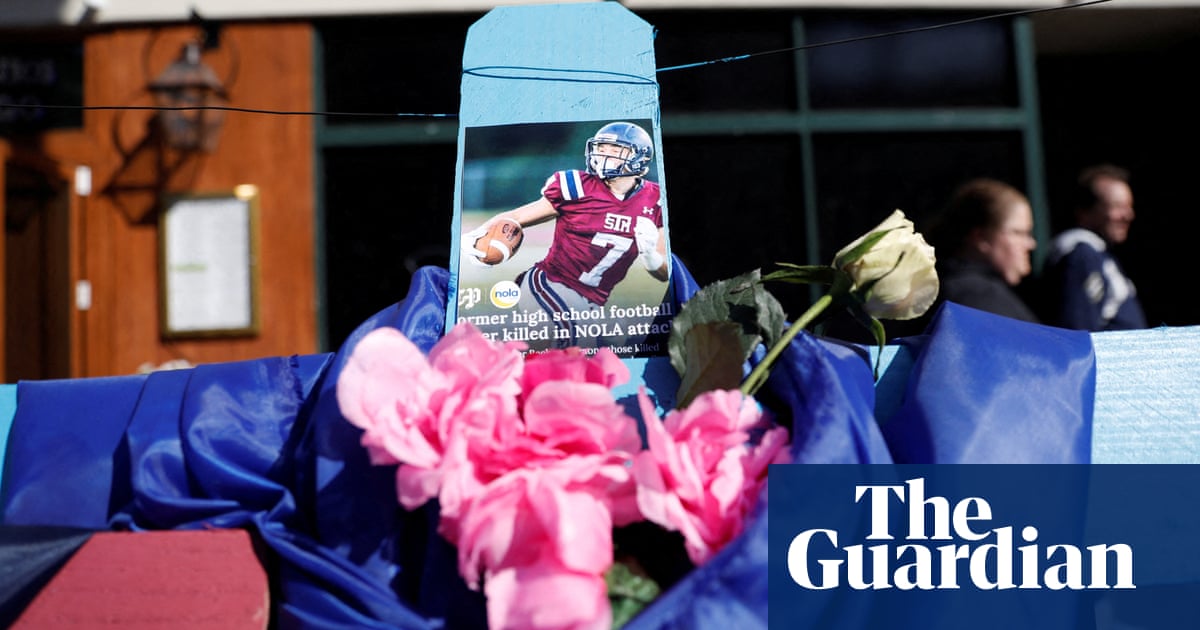In the late 90s, neo-psychedelicists the Olivia Tremor Control enjoyed critical acclaim and a rabid cult following, but co-founder Will Cullen Hart – who died on Friday, aged 53 – wanted more. “Guys would come up to us after shows and tell us, ‘You’re my band!’” Hart told me last year. “But I wanted us to be everybody’s band.” However, Hart and his musical partner Bill Doss had little interest in making music for “everybody”. And while major labels such as Elektra sensed commercial potential within OTC’s often brilliant and occasionally baffling acid-pop, record contract negotiations quickly foundered over questions of creative control, which Hart had no intention of relinquishing. “I didn’t want to be rich,” he admitted. “I just wanted to be able to buy more equipment and continue to create cool things.”
Such simple ambitions had bonded Hart with dear friends Doss, Robert Schneider and Jeff Mangum back in junior high school in their home town of Ruston, Louisiana. Hart’s parents, both interior designers, had encouraged their son’s precocious artistic leanings – his mother kept him stocked with reams of paper to scrawl on. But music became his chief focus after Schneider, his “mentor”, introduced him to lo-fi home-recording. “When we realised the Beatles made their records on four-track tape-recorders, it changed our lives,” Hart said.
The quartet began making their own music, posting each other cassettes and pushing the primitive technology beyond its limits. In the early 90s they relocated to Athens, a college town in Georgia, where they started a musical collective, Elephant 6, which later evolved into a record label. Hart, Doss and Mangum played in Synthetic Flying Machine, a psychedelic group with avant garde leanings, before Mangum, who had a penchant for employing lawnmowers and blenders as musical instruments, left and Hart and Doss renamed the group the Olivia Tremor Control.
Their debut album, 1996’s Music from the Unrealized Film Script: Dusk at Cubist Castle, was the first Elephant 6 release to win attention outside their hermetic scene. A work of scattered brilliance, it segued through drug-mangled pop to ambitious shoestring symphonies and uncompromising musique concrète. Critics rejoiced over the vision, the ambition, the wayward wandering and an accompanying bonus CD of instrumentals Doss and Hart recorded over two frenetic nights. They followed it with 1999’s Black Foliage: Animation Music, during which Hart’s LSD intake peaked. “I took acid quite a bit, maybe 200 times,” he said, explaining it helped him hear “different dimensions”. Black Foliage was a darker trip; once it was done, Hart quit acid. “I realised I’d learned all I could from LSD.”
Olivia Tremor Control broke up the following year. Hart had been experiencing symptoms of then-undiagnosed multiple sclerosis (MS) and, he told me, “I didn’t have the emotional ‘whatever’ … I cut people off. I couldn’t handle a confrontation. I stopped answering the door and the telephone.” After his friendship with Doss fractured, Hart formed a new group, Circulatory System. But his symptoms grew more serious; after a period of hospitalisation, he was diagnosed in 2005. The news prompted a reconciliation with Doss, and OTC reunited at that year’s All Tomorrow’s Parties festival in Camber Sands.
“We were a band again and it was nice,” Hart said. But while he and Doss began work on a third Olivia Tremor Control opus, it remains uncompleted. Hart struggled with his MS, which he said had “destroyed” him. “Recording every day? I can’t do that any more. There are these buzzing sensations that won’t stop. It’s horrible.” Then, in 2012, Doss died suddenly of an aneurysm. And while Doss had completed all of his vocal tracks for the new record, for years Hart couldn’t face finishing the album without him. “Days after Bill passed, I realised I couldn’t keep doing this. I needed to let it go.”

In the years after Doss’s death, film-maker Chad Stockfleth worked on a documentary about the Elephant 6 scene, his enthusiasm re-energising the obscure Athens collective. “We were all an emotional mess after Bill died,” Schneider told me. “Chad’s camera was like a therapist and a healing began.” Hart and Schneider returned to the unfinished Olivia Tremor Control album. Work progressed slowly, but Hart was “really enjoying working on the tracks”. The first two songs to surface from the album’s sessions, Garden of Light and The Same Place, appeared on Bandcamp on Friday, with Schneider noting that before Hart died, he was “excited and happy to see people were downloading it”.
Indeed, while the last decade or so of Hart’s life was characterised by illness and tragedy, there was also a sense that he had long since made peace with his ambitions, and recognised clearly what he’d achieved with his music. Stockfleth’s film in particular had provided a much needed dose of perspective. “It’s like I’m watching somebody else,” he told me last summer. “And those kids are cool! It makes me happy. We did something and I’m really proud of it.”

.png) 1 month ago
15
1 month ago
15













































